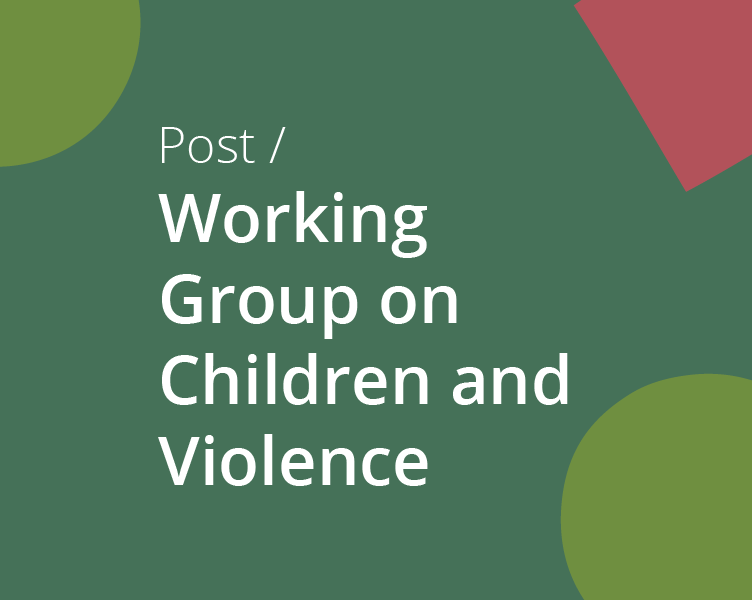Early Childhood as a Pathway to the Culture of Peace and Non-Violent Society
Freedom from violence is a human right of the child. But many children all over the world grow up with violence in homes, schools, neighborhoods, communities and countries. Moreover, the expansion of technology has increasingly exposed children to violence in the cyber space. Living in this context has a lasting negative impact on children, families and communities. The global community must address the root causes of violence and conflict. It must also focus on the transformative potential of children, in particular the critical importance of early childhood as a pathway to a non-violent society.
“A respectful, supportive child-rearing environment free from violence supports the realization of children’s individual personalities and fosters the development of social, responsible and actively contributing citizens in the local community and larger society.” Protection of the child from violence is “a key strategy for reducing and preventing all forms of violence in societies” and for promoting “freedom, justice and peace in the world.”[1]
It makes a critical difference to children whether they become accustomed to violence in those places of their daily lives such as family and school, or instead have the opportunity to gain and develop their own capacities and skills to interact with others and settle conflicts in a peaceful manner.
Education on human rights and the culture of peace and non-violence is integrated in SDG target 4.7. Furthermore, it should be recalled that the United Nations Declaration and Programme of Action on a Culture of Peace (1999) called for two concrete actions focusing on young children and emphasizing child participation:
- Ensure that children, from an early age, benefit from education on the values, attitudes, modes of behaviour and ways of life to enable them to resolve any dispute peacefully and in a spirit of respect for human dignity and of tolerance and non-discrimination;
- Involve children in activities designed to instill in them the values and goals of a culture of peace.
Ambassador Anwarul K. Chowdhury, under whose leadership the Declaration and Programme of Action on a Culture of Peace was adopted by consensus, also well known as a strong advocate for children’s rights in his long career as a former diplomat and through his work in UNICEF, emphasized:
“The events that a child experiences early in life, the education that this child receives, and the community activities and sociocultural mind-set in which a child is immersed all contribute to how values, attitudes, traditions, modes of behavior, and ways of life develop. Early childhood affords a window of opportunity to instill the rudiments that each individual needs to become agents of peace and nonviolence.”
Children learn from adults and develop mindsets and patterns of behavior. Our actions, behavior, way of speaking, and the language we use have enormous impact on younger minds. Adults (parents, family elders, childcare professionals and teachers) have potential to make a positive change in children’s lives telling them about compassion, respect for others, appreciating difference and diversity and amicable ways of resolving disagreement.
[1] Committee on the Rights of the Child, General comment No. 13 (2011), para. 14.
For any questions, please contact secretariat@childrightsconnect.org




